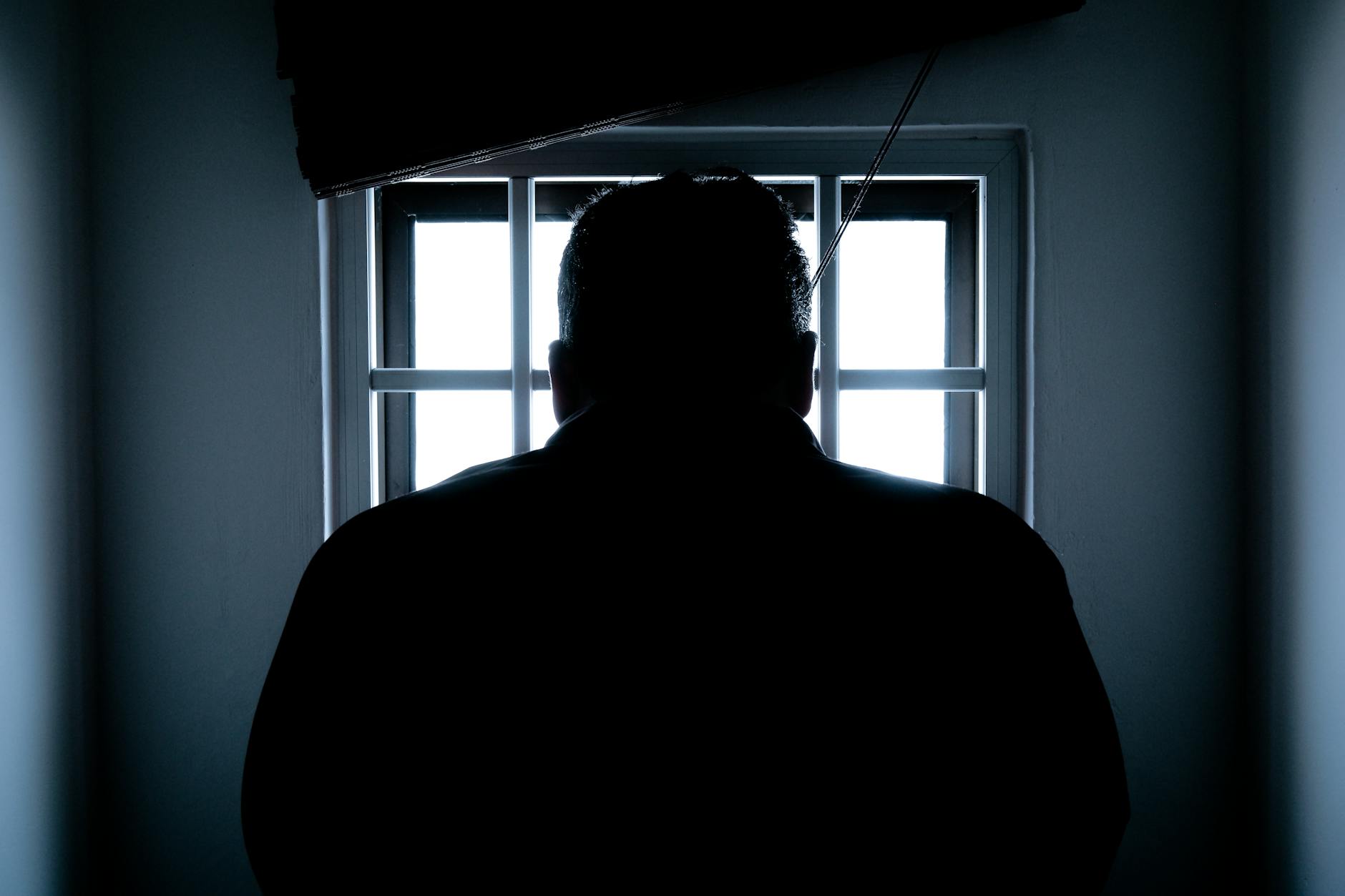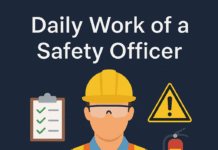
Why Safety Officers Could Go to Jail
Introduction
Safety in the workplace isn’t just a priority—it’s a necessity. When it comes to protecting employees and maintaining a safe environment, safety officers play a crucial role. But what happens when safety standards aren’t met, and accidents occur? In some severe cases, safety officers could face legal consequences, including imprisonment. But why would a safety officer go to jail? Let’s delve into the responsibilities, legal obligations, and possible scenarios that could lead to such outcomes.
What Does a Safety Officer Do?
Safety officers are the guardians of workplace safety. Their primary role is to ensure that all safety protocols are followed to prevent accidents and injuries. They conduct regular safety inspections, train employees on safety practices, and ensure compliance with health and safety regulations. But their job goes beyond just ticking boxes; they are responsible for creating a culture of safety within the organization.
Key Responsibilities of a Safety Officer
Safety officers are tasked with several critical duties, including:
- Conducting safety audits and inspections.
- Developing and implementing safety policies and procedures.
- Training employees on safety practices.
- Investigating accidents and incidents to determine the cause and prevent future occurrences.
- Ensuring compliance with local, state, and federal safety regulations.
Importance of Compliance and Regulations
Compliance with safety regulations isn’t optional—it’s a legal requirement. Safety officers must be well-versed in the laws governing workplace safety to avoid any legal repercussions. Failure to comply with these regulations can result in fines, penalties, and in extreme cases, imprisonment.
Legal Obligations of Safety Officers
Safety officers have a legal obligation to maintain a safe work environment. This includes understanding and enforcing health and safety laws that apply to their industry. They are also responsible for staying updated with changes in regulations to ensure ongoing compliance.
Overview of Health and Safety Laws
Health and safety laws are designed to protect employees from workplace hazards. These laws require employers and safety officers to provide a safe working environment, proper safety equipment, and adequate training. Ignorance of these laws is not an excuse and can lead to serious legal consequences.
Understanding Legal Accountability
Safety officers are legally accountable for the safety measures implemented in their workplaces. If an accident occurs due to negligence or failure to adhere to safety protocols, safety officers can be held liable, facing fines, lawsuits, and even imprisonment.
Common Scenarios Leading to Legal Issues for Safety Officers
Several situations could lead a safety officer to face legal trouble. These typically involve negligence or failure to perform their duties effectively.
Negligence in Conducting Safety Inspections
One of the most common reasons safety officers face legal consequences is negligence. If a safety officer fails to conduct regular inspections or overlooks potential hazards, they could be held responsible if an accident occurs as a result.
Failure to Enforce Safety Protocols
Enforcing safety protocols is a critical part of a safety officer’s job. If they fail to enforce these protocols, resulting in an accident, they could be deemed negligent and held liable.
Inaccurate Reporting and Documentation
Accurate reporting and documentation are vital in safety management. Falsifying reports or failing to document incidents properly can lead to severe legal consequences, including criminal charges.
Understanding Negligence and Liability
Negligence is a legal concept that refers to the failure to take reasonable care to avoid causing injury or loss to another person. In the context of safety management, negligence could mean failing to enforce safety protocols or not conducting regular safety audits.
What Constitutes Negligence in Safety Management?
Negligence in safety management includes ignoring safety hazards, failing to provide proper training, and not maintaining safety equipment. If a safety officer’s negligence leads to an accident, they could be held liable.
Direct vs. Indirect Liability
Direct liability refers to a safety officer being directly responsible for an incident, such as not inspecting faulty equipment. Indirect liability involves scenarios where the safety officer may not have caused the incident but failed to prevent it.
The Role of Documentation and Reporting
Proper documentation and reporting are critical for a safety officer’s defense in case of legal action. Records should be accurate, detailed, and updated regularly to reflect the true state of workplace safety.
Importance of Accurate Record-Keeping
Accurate record-keeping helps in defending against legal claims. It shows that safety protocols were followed and provides evidence of compliance with safety regulations.
How Poor Documentation Can Lead to Legal Trouble
Poor documentation or failure to report incidents can lead to legal challenges, as it may appear that the safety officer is trying to cover up negligence or misconduct.
Preventative Measures for Safety Officers
Safety officers can take several steps to avoid legal trouble. Staying informed about safety laws and regulations, conducting regular training sessions, and maintaining accurate documentation are crucial.
Best Practices for Staying Compliant
Safety officers should:
- Regularly review and update safety protocols.
- Conduct frequent safety audits.
- Keep detailed records of all safety activities.
- Ensure all employees are trained on safety measures.
Regular Training and Up-to-Date Certifications
Continuous education and training are essential for safety officers. Staying updated with the latest safety practices and regulations can prevent legal issues.
When Mistakes Happen: Legal Defenses for Safety Officers
If a safety officer is accused of negligence, several legal defenses are available. It’s crucial to work with legal experts to develop a robust defense strategy.
Legal Protections and Defenses Available
Safety officers have certain legal protections, such as proving that they acted in good faith or that the employer did not provide adequate resources to enforce safety protocols.
How to Respond to Legal Accusations
Responding promptly and professionally to legal accusations is essential. Gathering evidence, consulting with legal professionals, and maintaining a transparent communication line with authorities can help mitigate the situation.
The Impact of Workplace Culture on Safety
Workplace culture significantly affects safety practices. A culture that prioritizes safety encourages compliance and reduces the risk of accidents.
How Workplace Culture Affects Safety Practices
A positive safety culture involves leadership commitment, employee involvement, and continuous improvement in safety measures.
Promoting a Safety-First Culture
Promoting a safety-first culture requires consistent communication, regular training, and recognizing employees who adhere to safety practices.
The Importance of Continuous Education and Training
Ongoing training and education help safety officers stay updated on new laws, technologies, and best practices in safety management.
Staying Updated with Laws and Regulations
Safety officers should regularly attend workshops, seminars, and training sessions to stay informed about the latest safety regulations.
Ongoing Professional Development
Professional development includes obtaining certifications, attending safety courses, and participating in safety forums and networks.
The Role of Employers in Supporting Safety Officers
Employers have a responsibility to support safety officers in maintaining a safe workplace. This support can prevent accidents and protect safety officers from legal trouble.
How Employers Can Help Avoid Legal Issues
Employers can provide resources, training, and support to safety officers to help them perform their duties effectively.
Providing Adequate Resources and Training
Ensuring that safety officers have the necessary tools, equipment, and training can help maintain a safe working environment and avoid legal consequences.
Why Safety Officers Could Go to Jail: Understanding the Legal Responsibilities
Safety officers play a crucial role in ensuring the health and safety of employees in the workplace. They are responsible for identifying hazards, implementing safety protocols, and ensuring compliance with safety regulations. However, the role of a safety officer also comes with significant legal responsibilities. In some cases, safety officers could face legal consequences, including imprisonment, if they fail to fulfill their duties properly. This article explores the reasons why safety officers could go to jail and the legal implications of their actions or inactions.
1. Negligence in Duty
One of the primary reasons a safety officer could face jail time is negligence in performing their duties. Negligence occurs when a safety officer fails to take reasonable precautions to prevent accidents or injuries in the workplace. This could include failing to identify potential hazards, not conducting regular safety inspections, or not enforcing safety protocols. If such negligence leads to an accident that causes serious injury or death, the safety officer could be held criminally liable.
For example, if a safety officer fails to ensure that all workers are wearing necessary personal protective equipment (PPE) and a worker is injured as a result, the safety officer could be charged with negligence. In some jurisdictions, criminal negligence resulting in serious injury or death can lead to significant legal consequences, including imprisonment.
2. Violation of Safety Regulations
Safety officers are responsible for ensuring that their organization complies with all relevant safety regulations and standards. These regulations are often set by government agencies, such as the Occupational Safety and Health Administration (OSHA) in the United States or the Health and Safety Executive (HSE) in the United Kingdom. If a safety officer knowingly or unknowingly allows the organization to violate these regulations, they could face criminal charges.
Violations could include failing to maintain proper records of safety inspections, not providing adequate training to employees, or not ensuring that safety equipment is properly maintained. If such violations result in an accident or injury, the safety officer could be held legally accountable. In severe cases, especially where there is evidence of willful neglect or repeated violations, this could result in imprisonment.
3. False Reporting or Concealment of Information
Another situation where a safety officer could go to jail is if they falsify safety reports or deliberately conceal information about workplace hazards or incidents. Accurate reporting is essential for maintaining a safe work environment, and any attempt to hide information that could prevent accidents or injuries is considered a serious offense.
For instance, if a safety officer alters an incident report to make it seem less severe than it actually was, or if they fail to report a significant safety breach to the appropriate authorities, they could face criminal charges. Such actions are seen as obstructing justice and could lead to significant legal penalties, including jail time.
4. Failure to Report Serious Incidents
Safety officers are required to report serious incidents, such as fatalities or severe injuries, to the appropriate regulatory bodies. Failure to report such incidents can be seen as a deliberate attempt to avoid investigation or penalties and can have serious legal consequences. This is particularly true in jurisdictions with strict reporting requirements.
In some cases, a failure to report may be viewed as an attempt to cover up wrongdoing or negligence. This could result in criminal charges against the safety officer, especially if the lack of reporting leads to further harm or impedes a regulatory investigation.
5. Corporate Manslaughter and Homicide Charges
In extreme cases, safety officers could face charges of corporate manslaughter or homicide if their actions or inactions directly lead to the death of an employee. Corporate manslaughter charges are typically brought against organizations, but individual safety officers can also be held personally liable if they are found to have contributed to the conditions leading to a fatality through gross negligence or recklessness.
For example, if a safety officer is aware of a significant risk that could lead to death and fails to take action to mitigate that risk, they could be charged with manslaughter. This is especially true if it can be proven that the safety officer’s inaction was reckless or showed a disregard for human life.
6. Corruption and Bribery
Safety officers could also face jail time for corruption or bribery. This could occur if a safety officer accepts bribes in exchange for overlooking safety violations or providing favorable safety reports. Such actions are illegal and can result in severe criminal penalties, including imprisonment. Corruption not only undermines workplace safety but also erodes trust in safety compliance and regulatory systems.
7. Involvement in Fraudulent Activities
In some cases, safety officers may become involved in fraudulent activities, such as creating fake safety certifications or forging documents to indicate compliance with safety regulations. If these fraudulent activities are discovered, the safety officer could face criminal charges, including fraud or forgery, both of which carry severe penalties, including imprisonment.
Conclusion
Safety officers play a critical role in ensuring workplace safety, but they also face significant legal responsibilities. By understanding their legal obligations, maintaining accurate records, and promoting a strong safety culture, safety officers can protect themselves from legal issues, including potential imprisonment. It’s crucial to remember that negligence can have serious consequences, so diligence, compliance, and continuous learning are essential.
Fresher Safety Engineer Roles and Responsibilities
Fresher Safety Officer Roles and Responsibilities
What Are the Duties of a Fresher Safety Officer?
What is the Qualification of an HSE Manager?
How a Safety Officer Can Save Himself from Jail
FAQs
- What Are the Most Common Legal Risks for Safety Officers?
The most common legal risks include negligence, failure to enforce safety protocols, and inadequate documentation. - How Can Safety Officers Avoid Going to Jail?
Safety officers can avoid legal trouble by staying compliant with safety regulations, maintaining accurate records, and undergoing continuous training. - What Should a Safety Officer Do if Accused of Negligence?
If accused of negligence, a safety officer should consult with legal experts, gather evidence, and ensure all records are accurate and up to date. - How Does Workplace Culture Impact Safety Compliance?
A positive workplace culture promotes safety compliance by encouraging employees to follow safety protocols and participate in safety training. - Are Safety Officers Always Liable for Workplace Accidents?
Safety officers are not always liable for workplace accidents. Liability depends on whether the safety officer was negligent in their duties or if other factors were involved.

























I now vividly understand that negligence at work as a safety officer may lead to imprisonment, i therefore should not accept any bribe or anything that can compromise my compliance regarding health and safety protocols.